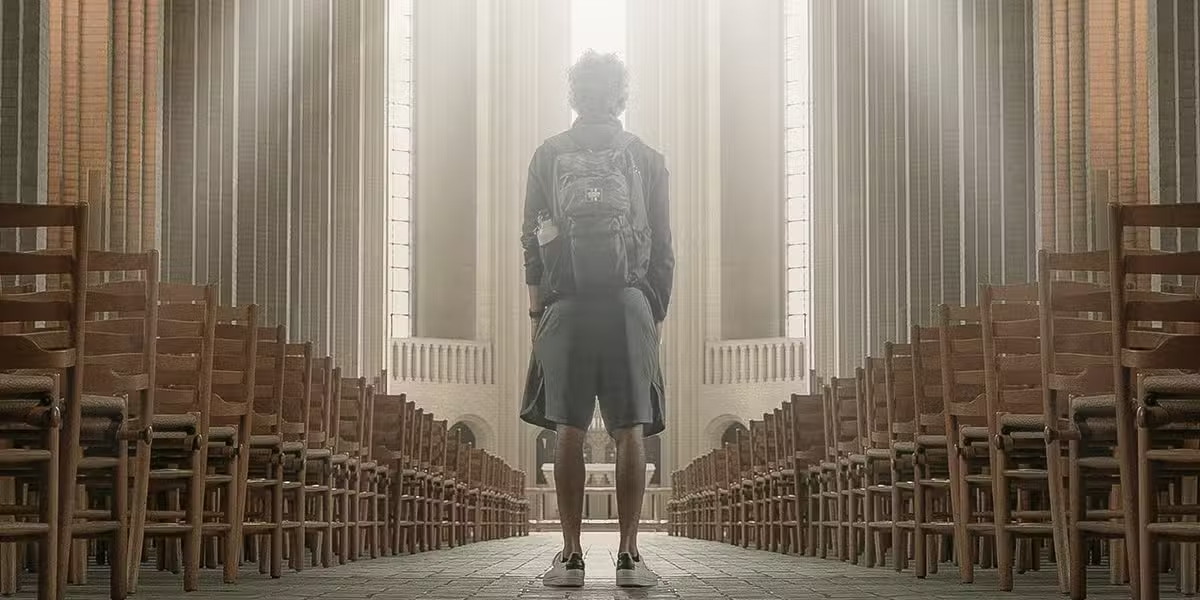St. Francis found the truth that leads to freedom in the truths of the Gospel, and the freedom he found was the freedom to love.
“As we forgive those who trespass against us,” and what we do not fully forgive, O Lord, make us fully forgive, so that for your sake, we may truly love our enemies and devoutly intercede for them with you, thereby rendering no evil for evil, but striving in you to do good to all. —St. Francis, paraphrase of the Our Father
In his writings and in the early biographies of St. Francis, he emerges as a person formed and informed by the Gospel of Jesus Christ. What does that mean? How do we even begin to live the Gospel, as he did, in our own time? We delight in Francis’s playfulness and in his joyful response to beauty and goodness, but like us, he also had to struggle with the harder questions posed by the Gospels. It is the implications of these more difficult questions that I would like to explore in this chapter on living the Gospel today.
One cold January night when the world seemed to lie in darkness, I sat down from a long day and turned to C-Span2, BookTV. One of the books that piqued my interest was James H. Cone’s, The Cross and the Lynching Tree. I’d not heard of it before, and as the book was being discussed, something awakened in me, and I saw how vacuous was the Christmas I had participated in a few weeks before.
Even though I was centered on the Christ Child and the Franciscan emphasis on the Incarnation, it was a sentimental Baby Jesus who filled my prayer and my imagination—not the baby who grew and matured and gave us the Sermon on the Mount which he then lived out and because of which he was put to death on the hanging tree of the cross. I was looking at the Baby Jesus of countless crèches and not at the babies who were slain by King Herod because of the Baby Jesus.
The Christmas I’d celebrated was in the midst of a frenzied commercialism equaled only by the despair of so many who had lost homes and jobs and dignity in support of an imperfect and money-corrupted government that insists on supporting an often selfish and corrupt corporate empire that controls the world. The implications of the connections between Jesus in the crib and Jesus on the cross, like someone hanged from a tree, are overshadowed and seem, at times, almost eradicated by the world that our greed, self-interest, and neglect of the poor and the disenfranchised have created.
St. Francis saw the connection between the crib and the cross. Brother Thomas of Celano, in his first life of St. Francis, said of the live Christmas crib which Francis began near the town of Greccio, in the very center of Italy:
His greatest care, his most vivid desire, his supreme resolution was to observe the holy Gospel always and in everything and with all vigilance and care, with all of his mind’s desire and his heart’s fervor, he wanted to follow the teachings and imitate the examples of our Lord Jesus Christ to perfection. He continuously recalled and meditated over His words and with very keen contemplation, he kept His works before his eyes.
The humility of the Incarnation and the charity of the Passion were foremost in his mind, so that he rarely wanted to think of anything else. And so we ask ourselves, what is to be done, what can we do to bring the Christ of the Gospel back into Christmas in a way that is more than a bumper sticker slogan that ends up being mainly a political football? How can we bring the Christ of the Gospel back into our daily lives so that we actually live out the teachings of the Gospel where we first learned the story of Christ?
In the quote above Brother Thomas says of St. Francis, “His greatest care, his most vivid desire, his supreme resolution was to observe the holy Gospel….” And this very Gospel emphasizes over and over again the imperative of reaching out to those who, like the man in Jesus’s parable of the Good Samaritan, have fallen among thieves, which in turn calls to mind the rapaciousness of those forces and structures that control our economy and of the many who are left by the wayside. How, then, can we today reach out to those fallen and to the thieves, as well?
St. John the Evangelist tells us that the truth will set us free. But what does that mean? St. Francis found the truth that leads to freedom in the truths of the Gospel, and the freedom he found was the freedom to love. God’s truth imparts to us the freedom not only to grasp the truth that is being imparted but also the freedom from what previously had been preventing us from acting on that truth. The Gospel itself will show us not only how we are to discern the truth, but how the truth leads to the action we call love.








